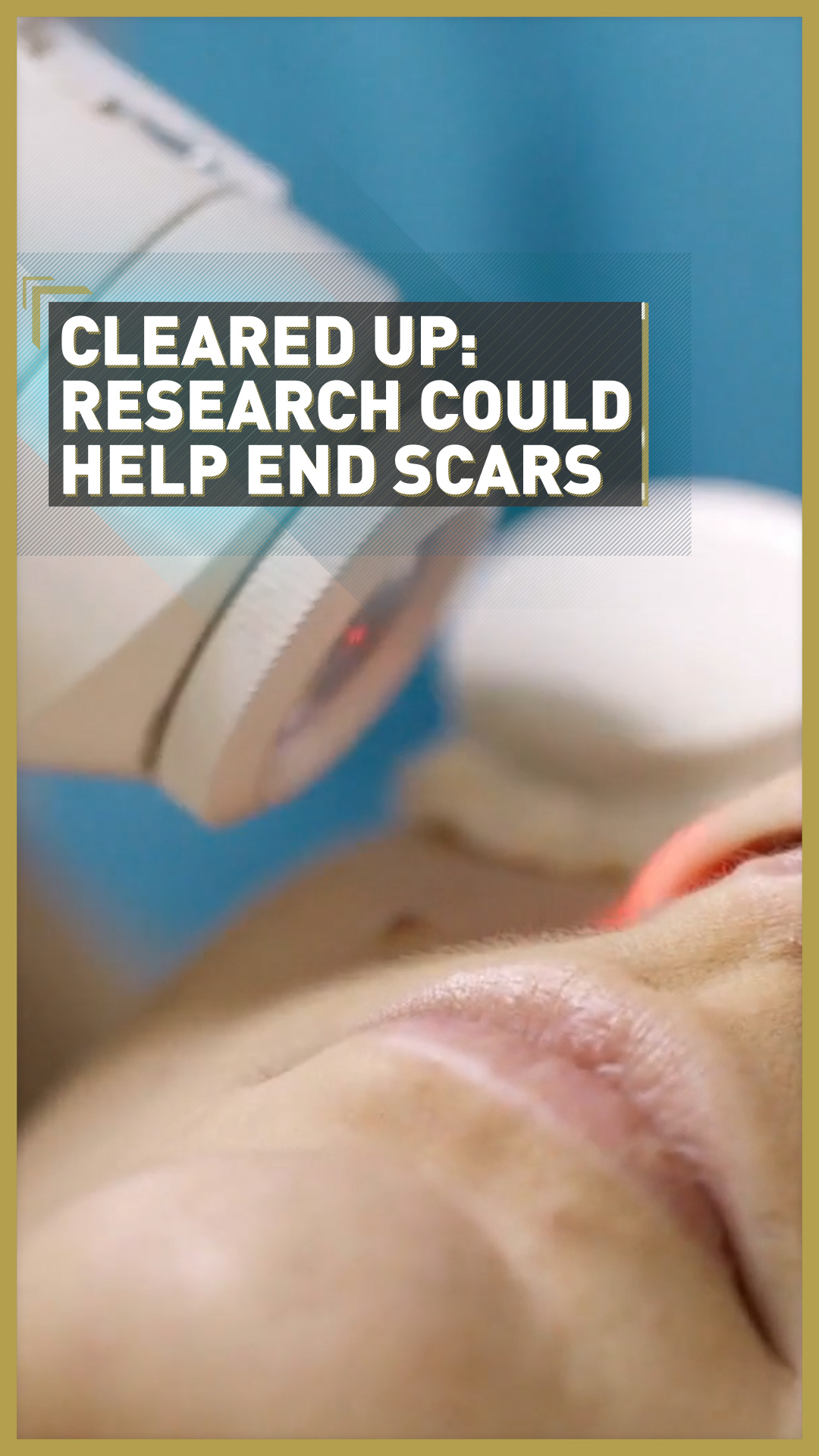02:17

Do your genes determine how you scar after injury or surgery?
Scientists at the University of Bristol are studying how genes may determine scarring, in part with the help of zebrafish and funding from the The Scar Free Foundation, which is aiming for "scar-free healing within a generation."
The charity, which supports people with life-altering scarring, such as burn survivors and people with clefts, will put $2 million into a new research program led by the university.
The research will focus on specific genes that part of the team, led by Nic Timpson, hopes to identify in human patients; the other researchers will then experiment on those genes in other species to see if scar formation is affected.
"What we're able to do because of Nic's human genetic approach, is take advantage of that variation and hunt in the human population genetics for those genes that seem to be associated with healing very well without a scar, versus healing not so well with a big old scar," Paul Martin, a professor of cell biology, who is one of the research leaders, explained.
"You can't go around lacerating thousands of people in order to be able to measure them and look at genetics. But it turns out that in the cohort that I look after, 'The Children of the 90s', the mothers within the study had all had exactly the same vaccination at the same time, the same procedure," Timpson told CGTN Europe.
"So they'd had a small laceration with a needle and they'd received the same vaccination at the same time. And because of that, we essentially had a natural experiment where a small wound had been delivered to thousands of people," he explained.
"And we invited them into a clinic and we measured all of their scars and we started looking at the patterns in those scars, how big they are, [are they] raised, their coloration and so on."

Richardson holding zebrafish, which are used to test scarring-linked genes /University of Bristol/Ibolya Feher
Richardson holding zebrafish, which are used to test scarring-linked genes /University of Bristol/Ibolya Feher
Crucially, this isn't just about visible scars, but fibrosis and other types of internal or organ scarring, which often have serious health outcomes.
That's why some of the lab research at Bristol will focus on translucent zebrafish, using live imaging to see how wounds heal or diseases progress, collagen is deposited and scars are formed.
"The program will enable us to marry up the fantastic population health cohort approaches that Bristol does so well, with our own wet lab experimental and cell biology studies in order to break new ground in scarring research," said Martin.
"Zebrafish are better if you want to live-image the process because they're translucent, they're completely see-through. [Researchers can] then look at that fish, where you've knocked the gene down or overexpressed it and see how its inflammatory responses change – for example, which we know is fundamentally linked to scarring," he explained to CGTN Europe.
"You can watch the collagen itself. Collagen is the stuff that makes up a scar. You can watch that being deposited and remodeled,"

Part of this research started 30 years ago with the recruitment of a local cohort of new parents, chosen because many of them had similar BCG vaccination scars, and their children would also be vaccinated and potentially scarred.
This meant Martin and his colleagues could assess the different scars the cohort developed over time, and begin to witness how people had different reactions to the same "event" or wound.
"Without these volunteers, you can't measure the scars, you can't see the genetics, you can't do any science. So if there was one thing I would [say], it would be the absolute appreciation from us, from Paul, for people giving up their time and being invested in us and allowing us to do science, because that's really very special," Timpson added.
Three decades later, the charity hopes the research will help millions around the world.
"This life-changing research will help us identify which factors cause us all to scar differently, and develop innovative treatments to improve patients' lives," said Scar Free Foundation CEO Brendan Eley.

